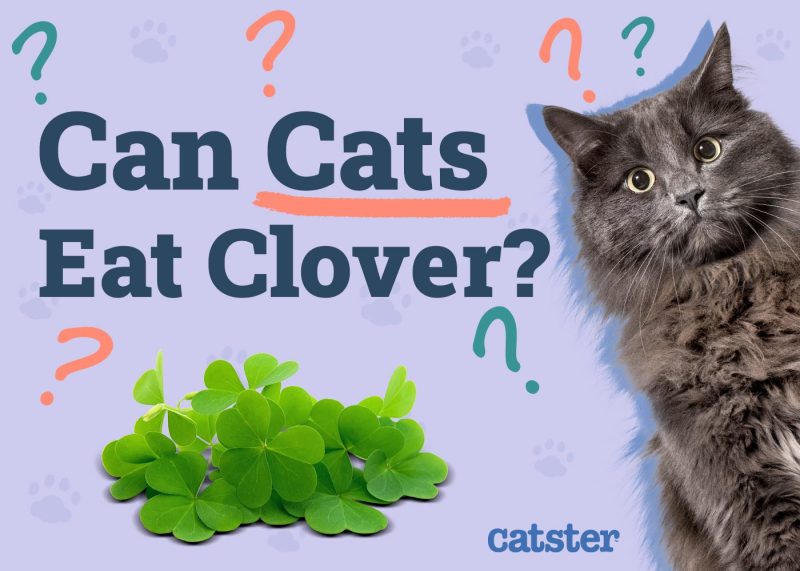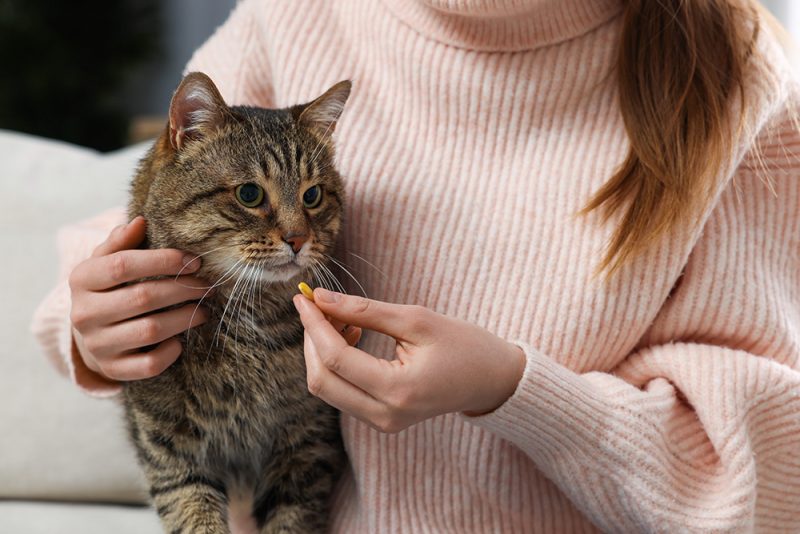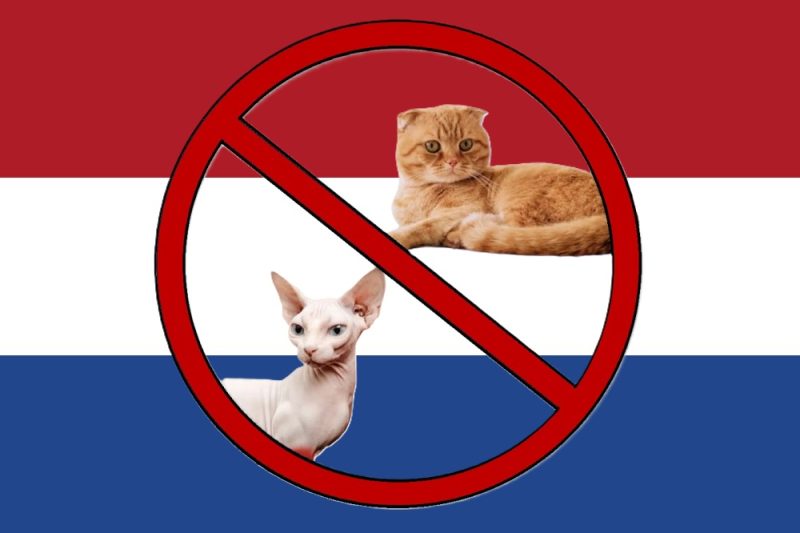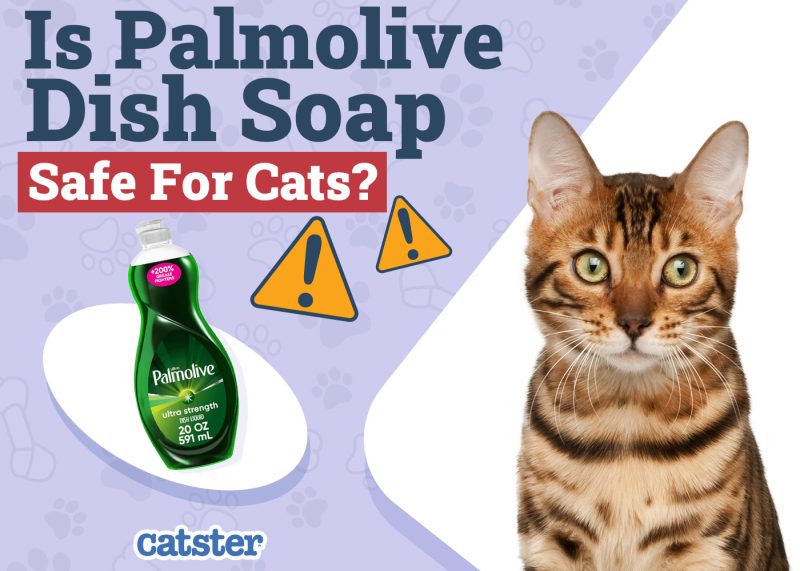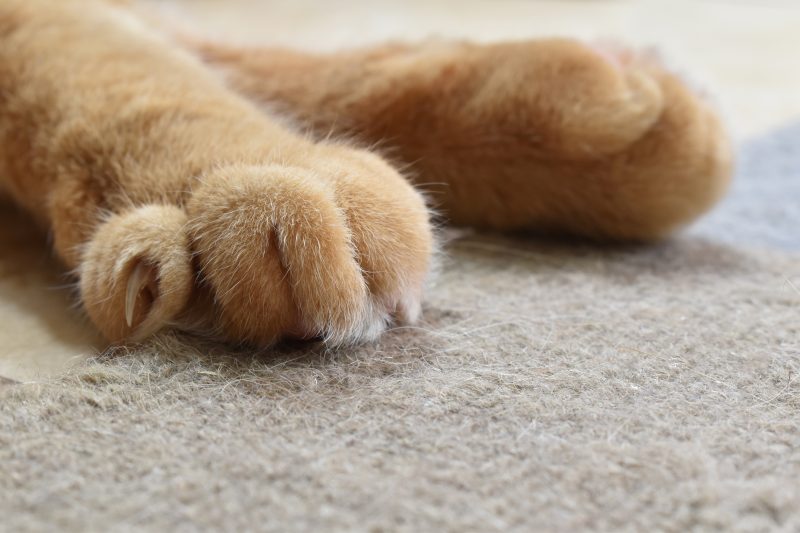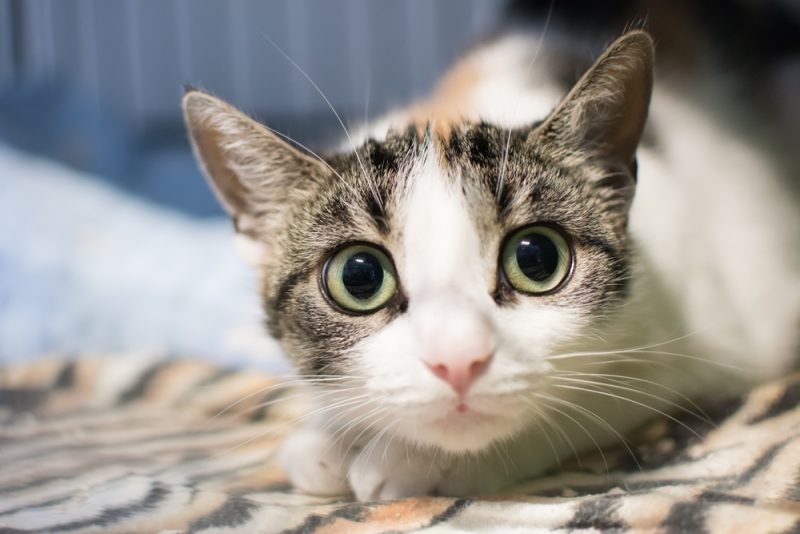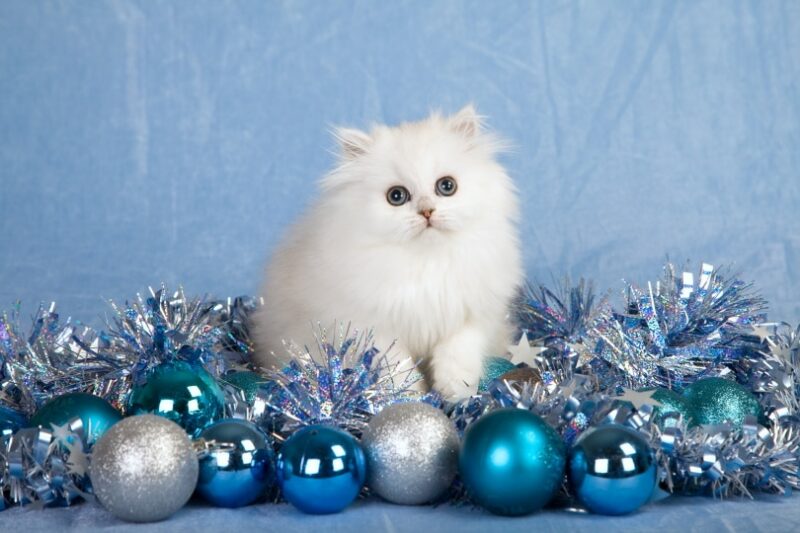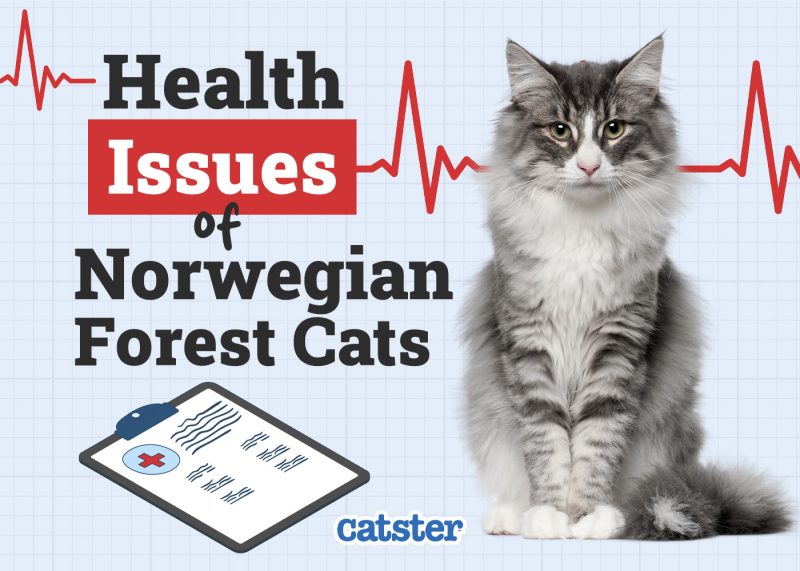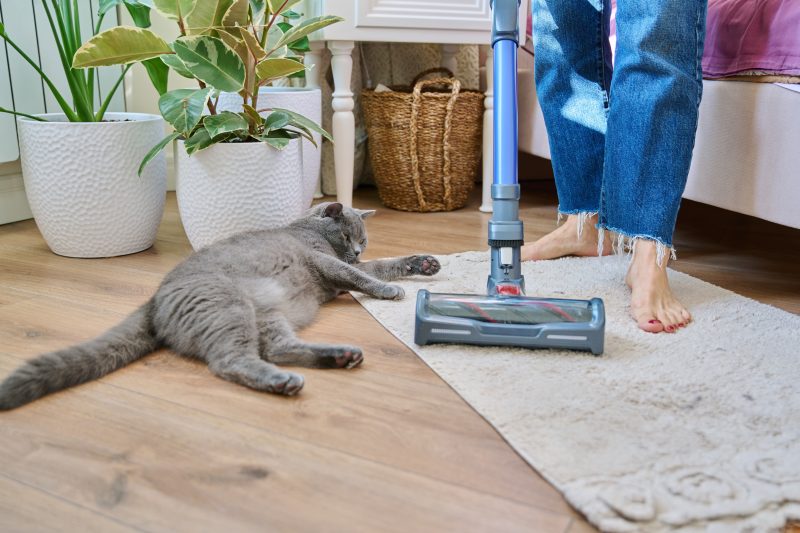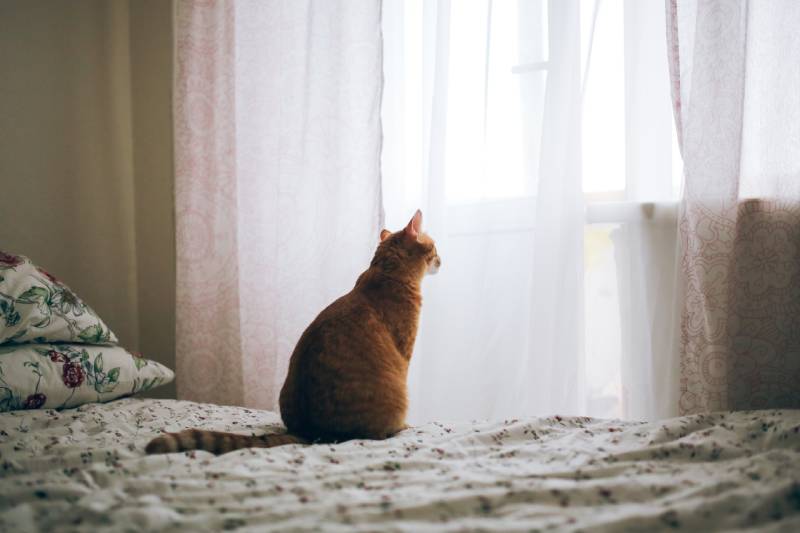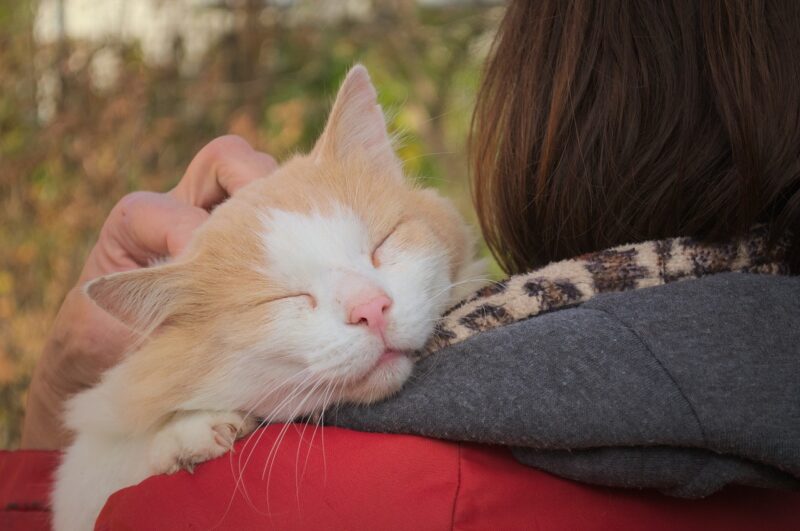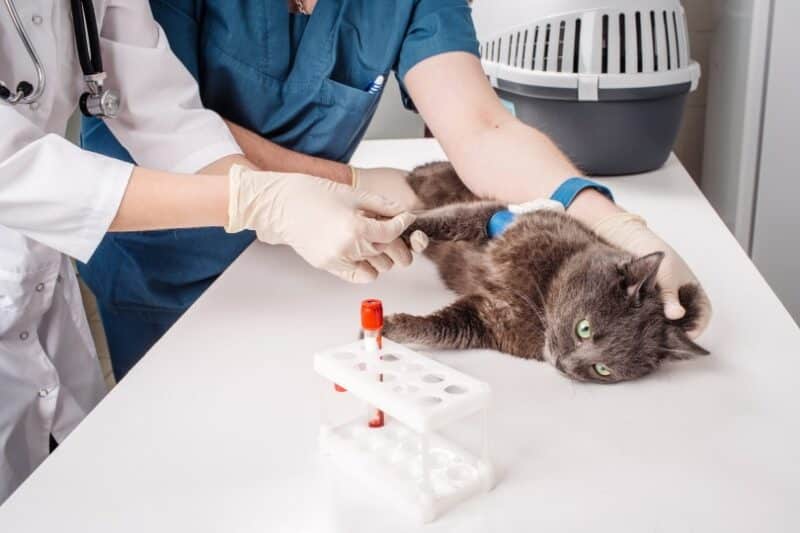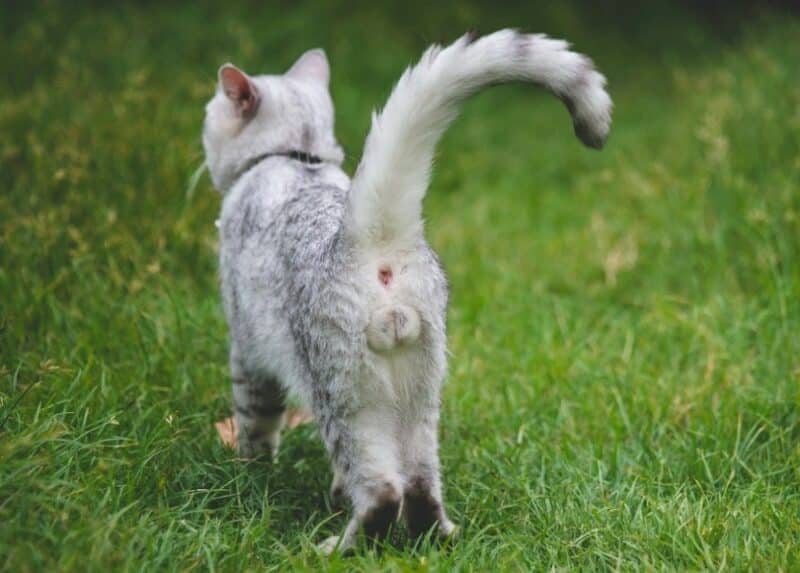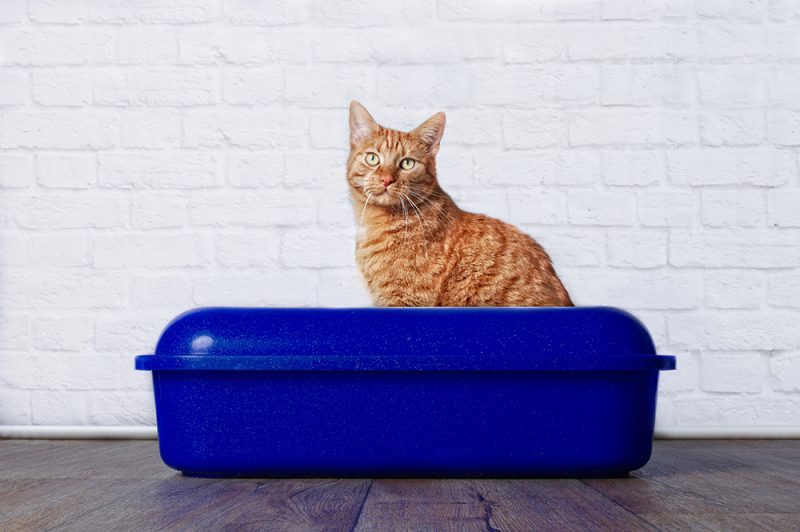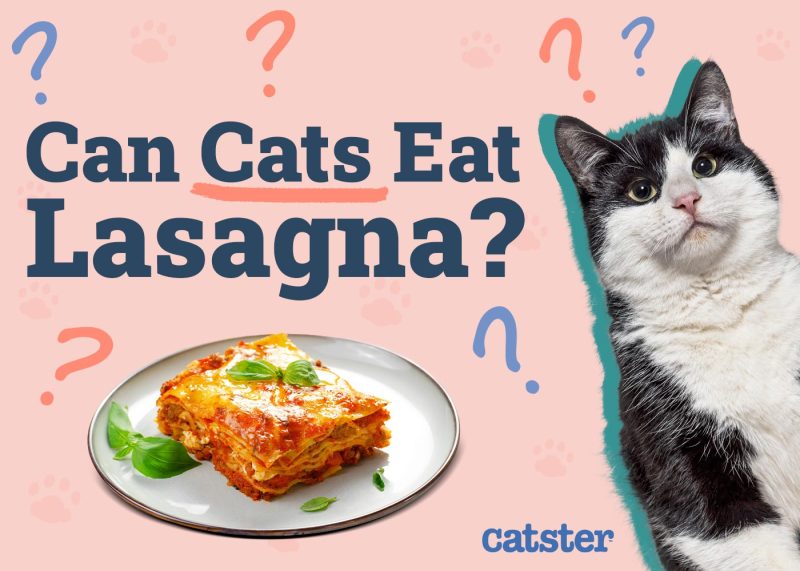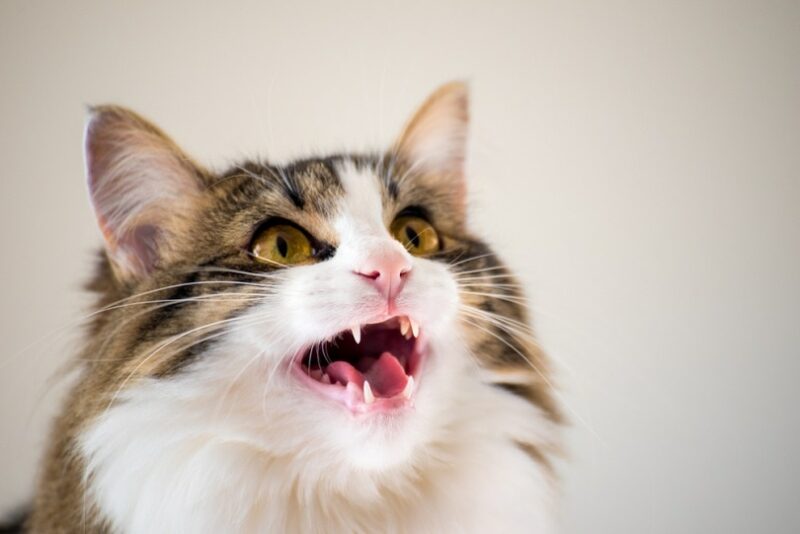Cats are curious creatures and love to paw and nibble at plants. Clover plants are among the many plants that are poisonous to your feline. They are sometimes called shamrock, the good luck plant, or sorrel. The bitter taste of the plant should deter cats and dogs from eating it, but if your cat is feasting on one of them, it may not be such “good luck” for your furry friend. The severity of the poisoning may depend on the type of clover plant, the quantity ingested, and the health of your cat.

Clover Toxicity
The different types of clover plants belong to the genus Oxalis, and they contain the toxic compound oxalic acid and should not be ingested. While a small consumption of leaves may not cause toxicity, ingestion of larger amounts, which is not common in cats and dogs, can lead to salivation, tremors, and kidney failure in severe cases.
In the event you caught your feline nibbling on a shamrock plant or they are exhibiting any signs of poisoning, call your vet immediately.
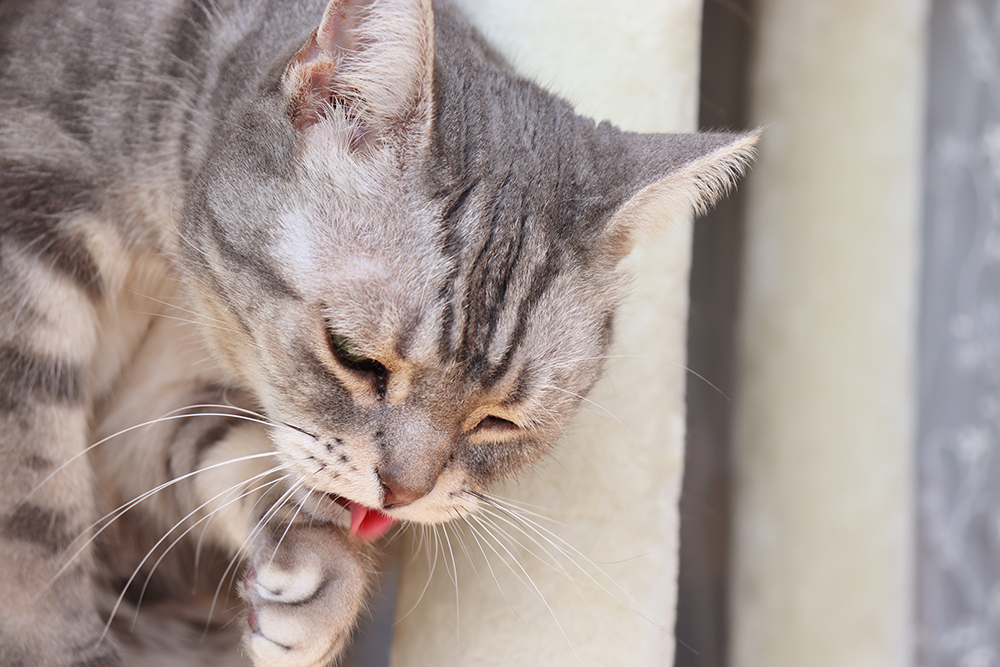
Signs of Clover Toxicity
- Diarrhea
- Lethargy
- Vomiting
- Pain
- Tremors
- Loss of Appetite
- Drooling
Signs of Kidney Failure
Among other causes, acute kidney failure can be the result of eating something toxic, such as a plant. When a cat eats something poisonous there are different mechanisms that can affect the kidney function. In the case of soluble calcium oxalates, they bind to calcium in your cat’s system, ending up as crystals in your cat’s kidney and urinary system. In addition to this, the calcium levels in your cat’s bloodstream drop resulting in hypocalcemia. As a result, your cat may appear very sick.
Symptoms of Acute Kidney Failure
- Anorexia
- Bloody diarrhea
- Blood in vomit
- Excessive drinking
- Dehydration
- Weakness
- Depression
- Seizures
Any of these signs warrants an urgent vet visit.
If you need to speak with a vet but can't get to one, head over to PangoVet. It's an online service where you can talk to a vet online and get the advice you need for your pet — all at an affordable price!

Types of Clover
Red Clover

Native to Europe, Northwest Africa, and Western Asia, the red clover (Trifolium pratense) is a herbaceous plant that does not belong to Oxalis genus and is not toxic itself, but the fungus that develops on the plant can poison your cat and should be avoided.
White Clover

White clover (Trifolium repens), also known as Dutch clover, is another herbaceous clover plant. As this low-lying shrub ages, it grows pink-tinted white blossoms. The leaves contain glycoside and can also be toxic to your cat and should be avoided or removed from their environment.

Poisonous Herbs
There’s so much joy in preparing and eating a home-cooked meal. In doing so, we need to be aware of the herbs that can potentially poison our cats. Along with clover, several other herbs are toxic to cats.
- Marjoram (Origanum majorana): The visible signs of poisoning from marjoram are nausea, vomiting, drooling, and diarrhea.
- Oregano (Origanum vulgare hirtum): If your cat consumes a small amount of oregano, they may experience some mild stomach upset due to the gastrointestinal irritants content in the herb. Oregano essential oil is also toxic and can lead to irreversible liver damage. If used regularly, you may notice signs of toxicity, which include vomiting nausea, diarrhea, labored breathing, mouth irritation, collapse and liver issues.
- Tarragon (Artemisia dracunculus): If your cat eats tarragon, they may exhibit mild stomach upset like diarrhea and vomiting.
- Marijuana (Cannabis sativa): When a cat ingests or inhales marijuana, they can become severely intoxicated. They may be vocal, hyperactive and disoriented. The intoxication may cause drooling or vomiting. If it is severe, your pet may experience seizures and tremors, and a possible coma.
- Chives (Allium schoenoprasum): Ingesting chives can cause sickness in cats in two ways. The mildest form is stomach upset and abdominal pain, vomiting, diarrhea, and drooling. A more serious type of poisoning caused by chives would be hemolytic anemia, a condition that causes the red blood cells to rupture. The symptoms include fever, weakness, discolored skin, loss of appetite, pale lips, mouth, and gums, rapid breathing and heart rate, lethargy, discolored urine, and collapse.
- Cacao: Chocolate toxicity in cats presents itself with vomiting, loss of appetite, diarrhea, restlessness, tremors, seizures, panting, rapid breathing and heart rate, increased thirst and urination, and coma. If you suspect that your cat devoured chocolate, call your vet immediately as these symptoms can quickly progress and be deadly. As with any other poisoning, inducing vomiting at home is not recommended.
- Scallions or Green Onions (Allium fistulosum): Similarly to chives and any other Allium family member, if your cat ingests scallions, they can develop anemia and show signs such as panting, weakness, bloody urine, vomiting, diarrhea, lethargy, rapid heart rate, labored breathing, and collapse.
- Chamomile: (Anthemis nobilis): Chamomile poisoning symptoms include contact dermatitis, vomiting, diarrhea, and loss of appetite. Allergic reactions are also possible.
- Mint (Mentha species): When consumed in excess, mint poisoning signs include, stomach upset, diarrhea, headache, cramps, vomiting, skin irritation, and liver damage.
- Lavender (Lavendula angustifolia): If your cat nibbles on lavender, they may experience an upset stomach. However, the essential oils can cause severe poisoning. Since cats do not have the specific liver enzymes to process the compounds contained in essential oils, the concentration of the oils in the plant can be deadly.
- Lemongrass (Cymbopogon citratus): If your cat nibbles on lemongrass in small amounts, they may experience minor signs like stomach upset. The essential oil in lemongrass is deadly, however. In small amounts, the cumulative effects of the essential oil in lemongrass can make your cat terribly ill. The symptoms of lemongrass poisoning include stomach pain and upset, swelling of the abdomen, vomiting, loss of appetite, fever, weakness, shock, and gastrointestinal upset. Interestingly, some integrative veterinarians use controlled doses of the dry plant to treat diarrhea and gastrointestinal inflammation, as well as topical skin infections.

Keep in mind that the poison in many of the plants that are toxic to cats is cumulative. This means, that small amounts, over time, can build up and make your cat extremely sick.

Conclusion
Whether it causes minor stomach upset or serious complications, plant poisoning should not be taken lightly. The simple fact is that we can choose houseplants that are safe and eliminate the ones that may pose a health risk to your cat. Herbs, however, are used every day to enrich the flavor of our food and you may want them to remain in your home. In this instance, take precautions and keep them out of the reach of your cat. In the event of accidental ingestion, contact your vet or poison control center immediately.
See also:
